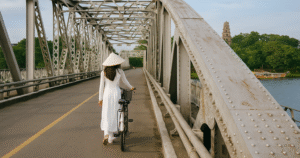
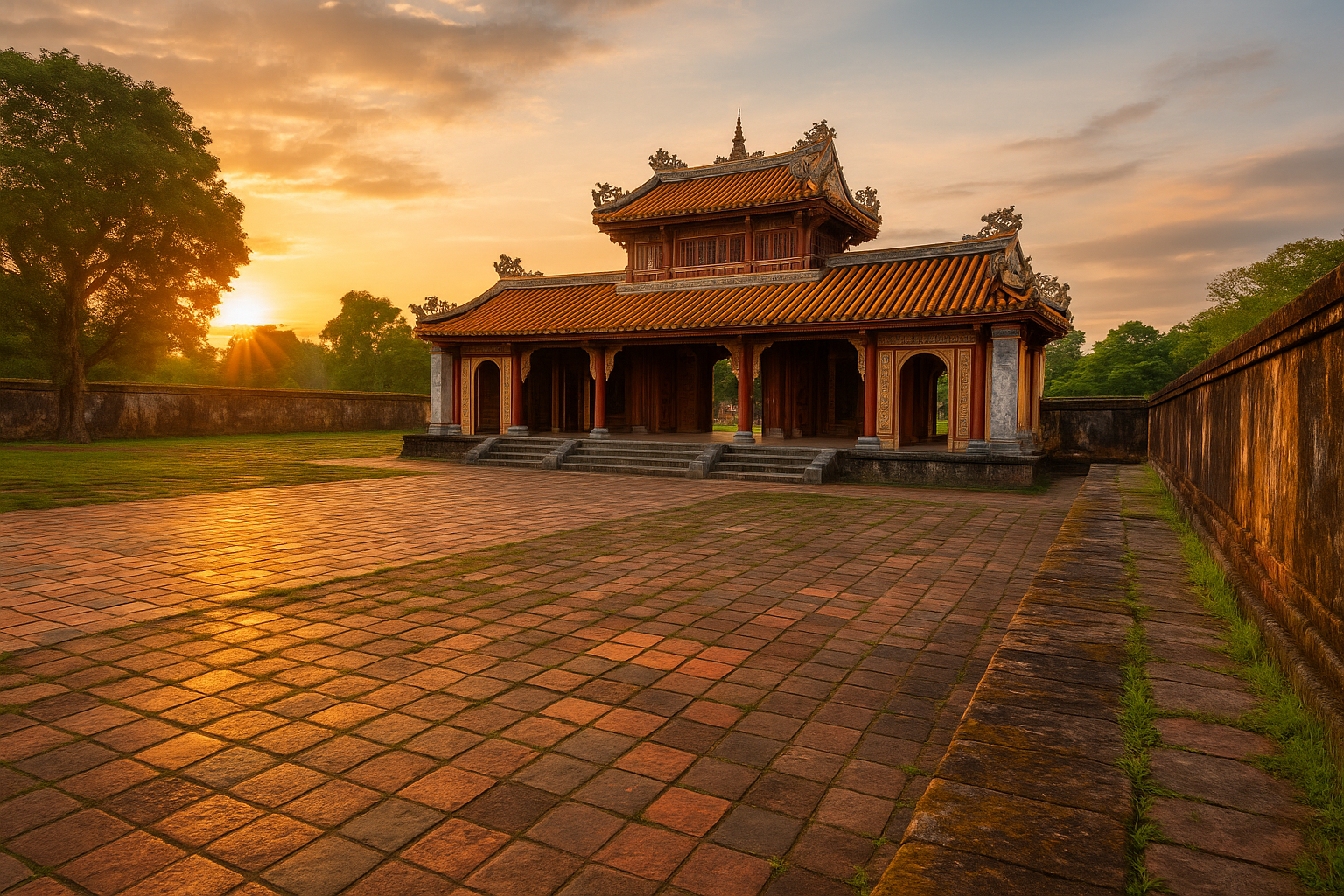
In the heart of central Vietnam lies a city that doesn’t shout to be seen. Hue Travel whispers. It invites you not with spectacle, but with serenity, grace, and an air of quiet majesty. This is not just another stop along the tourist trail. This is Hue – Vietnam’s ancient capital and a city where the past still breathes.
If you’re planning a trip to this poetic city, timing matters. The best time to visit Hue is from March to May and September to November, when the skies are clear and temperatures are pleasant. During these months, you can fully enjoy walking along the banks of the Perfume River, exploring royal tombs, and admiring the sunset from the citadel walls without the discomfort of heavy rain or extreme heat.
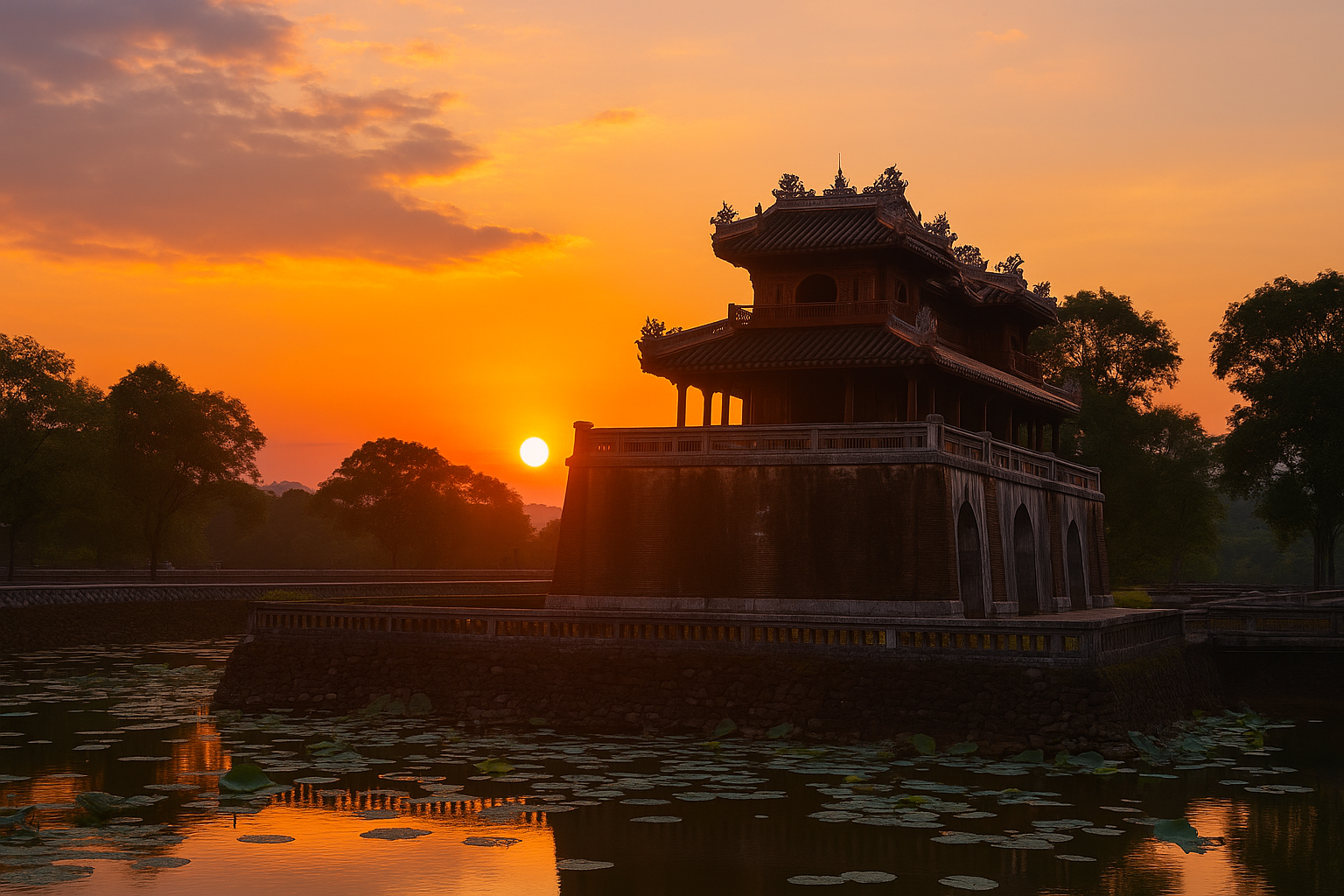
The rainy season (October to December) adds another layer of romance to the city. Picture the mossy paths of ancient pagodas shimmering with rainwater, the gentle drizzle over the river, and the deep fragrance of earth and old stones. For travelers who find beauty in melancholy, Hue in the rain is unforgettable.
What truly sets Hue apart is its soul. Once the imperial capital of Vietnam under the Nguyen Dynasty, the city retains a refined elegance in its traditions, cuisine, and people. Hue culture is one of introspection, poetry, and grace.
Here, you can attend a traditional Ca Hue music performance on a dragon boat, where the melodies float across the Perfume River at sunset. Visit old garden houses that are a perfect blend of feng shui and nature. Sip lotus tea in a quiet corner while monks chant nearby in Thien Mu Pagoda.
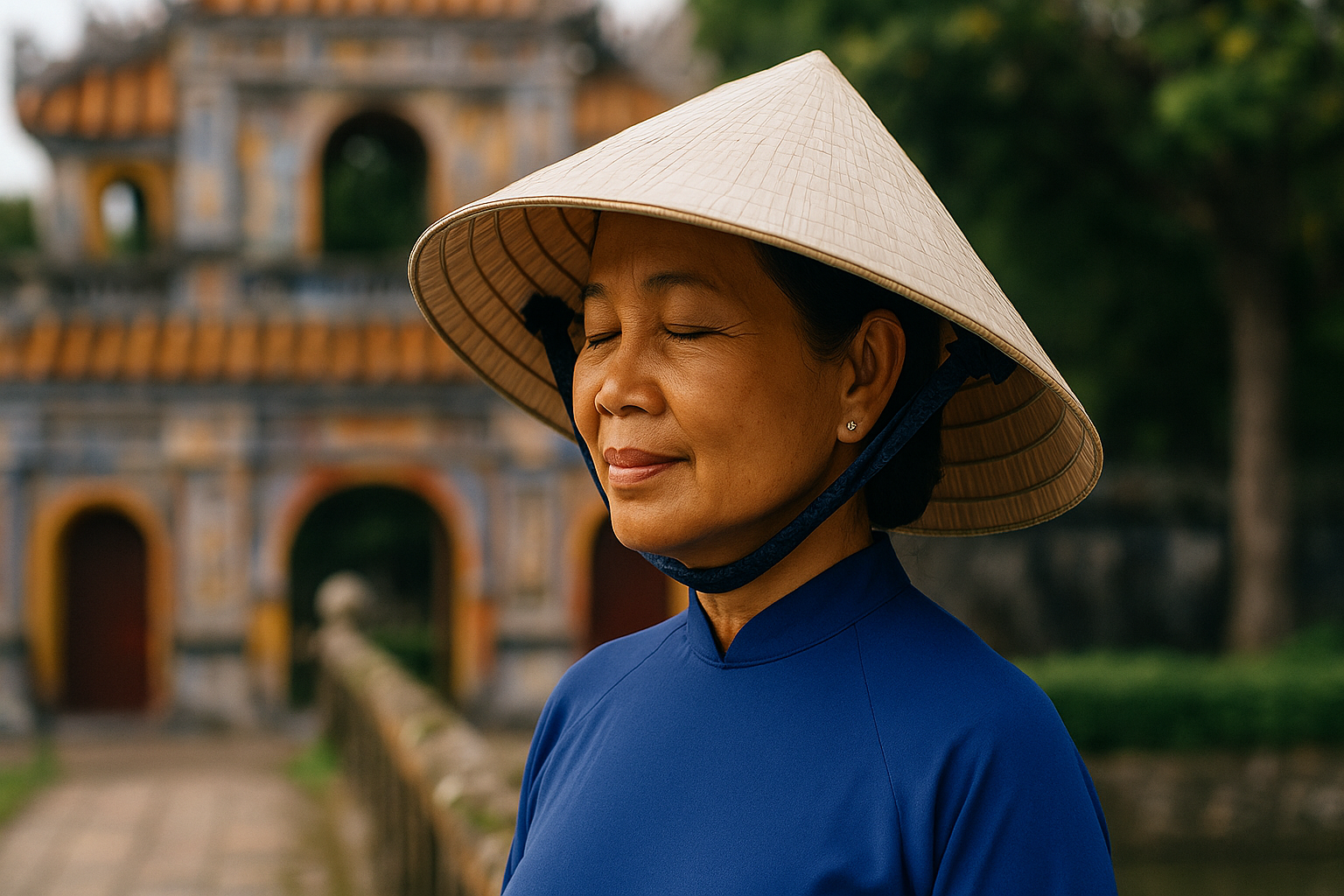
Hue people speak softly, move gently, and cook with precision. Even simple street food is plated with care. Every detail in Hue reflects an old-world sensitivity rarely found elsewhere.
If you’re wondering about things to do in Hue, the list goes beyond just ticking off historic sites. Yes, you should explore the Imperial City, with its grand gates and crumbling beauty, but Hue offers more:
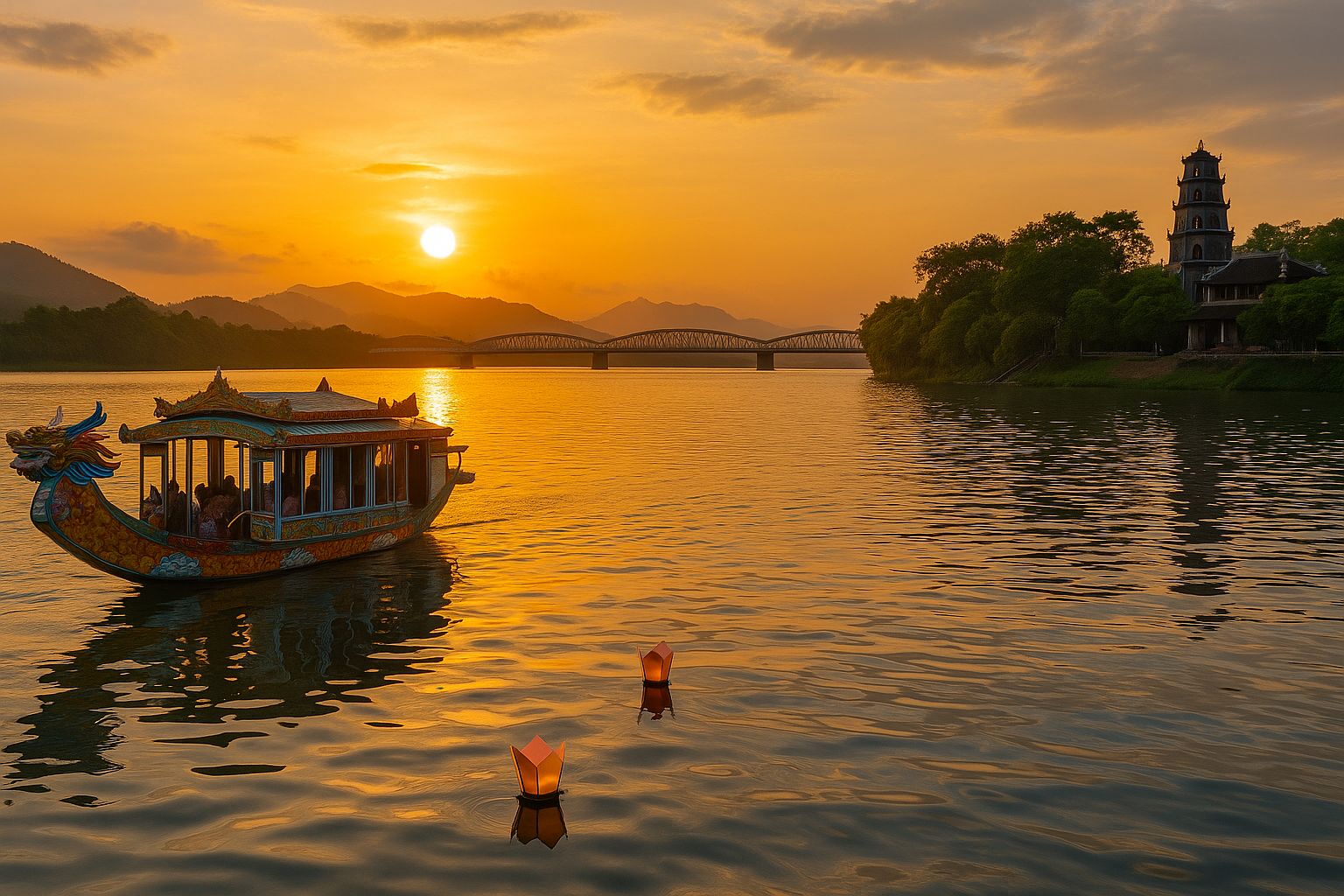
Each experience is soaked in quiet meaning, often guided by locals who tell stories passed down for generations.
In many cities, you travel to see. In Hue city, you travel to feel.
There’s something meditative in the way the Perfume River moves, in how the incense curls around temple altars, in the rhythm of monks walking barefoot at dawn. You may not leave Hue with a long checklist of attractions conquered, but you will leave with something far more precious: a feeling of having been still, connected, and changed.
Whether you’re a first-time visitor or returning for the second or third time, Hue greets you with something new each visit — a hidden alley, a quiet smile, or a story waiting just beneath the surface.
Hue travel is not about rushing. It’s about being. And at HueCoDo, we believe that your journey here should be just as poetic as the city itself. We don’t offer tours. We offer invitations — to walk, taste, reflect, and feel like royalty, if only for a day.
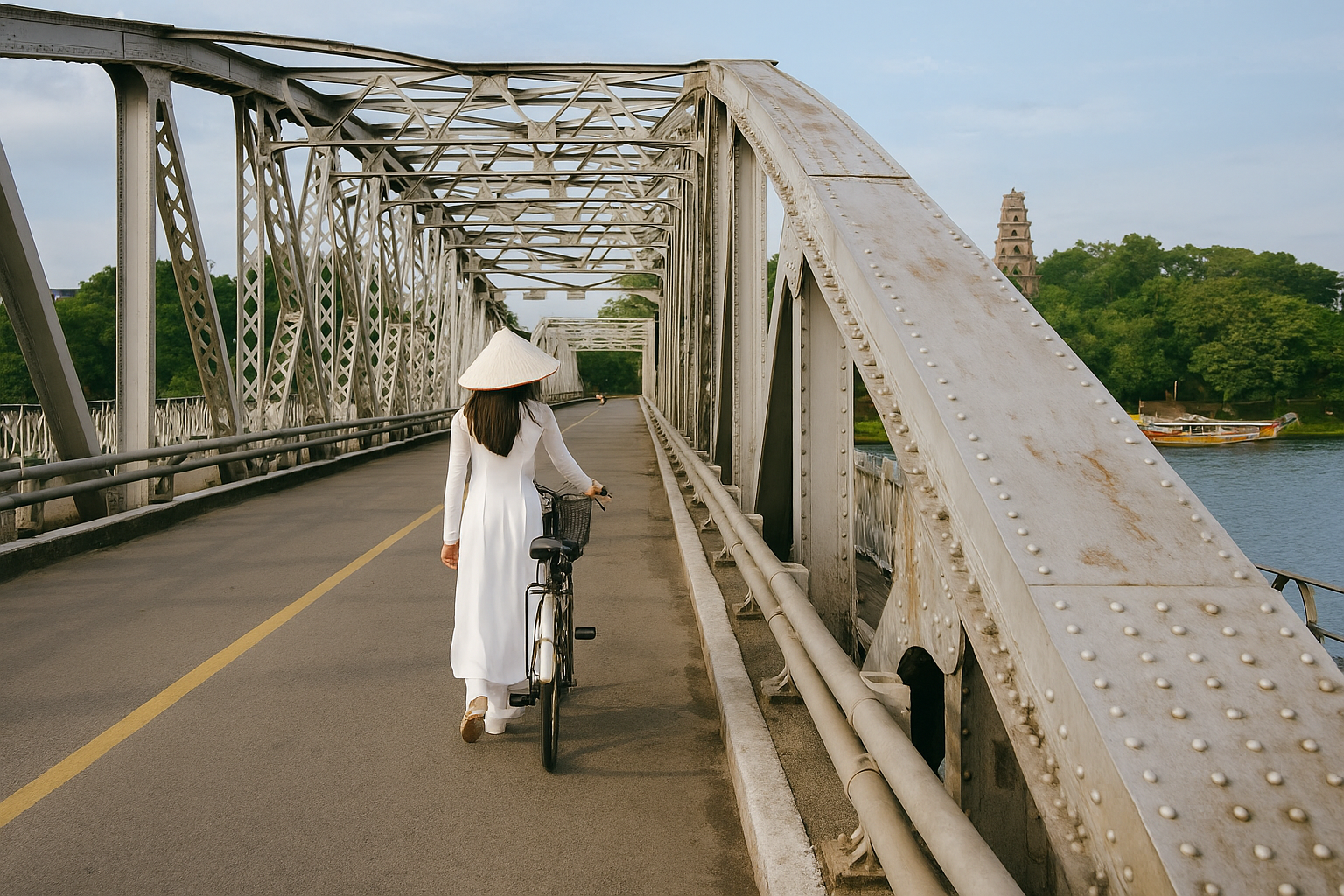
HueCoDo.com is your go-to travel companion for exploring the soul of Hue – Vietnam’s ancient capital. From hidden gems to iconic landmarks, we help you discover Hue the cool way. Connect. Explore. Do more with HueCoDo.
Top Destination
Information
Follow Us
Payment channels
